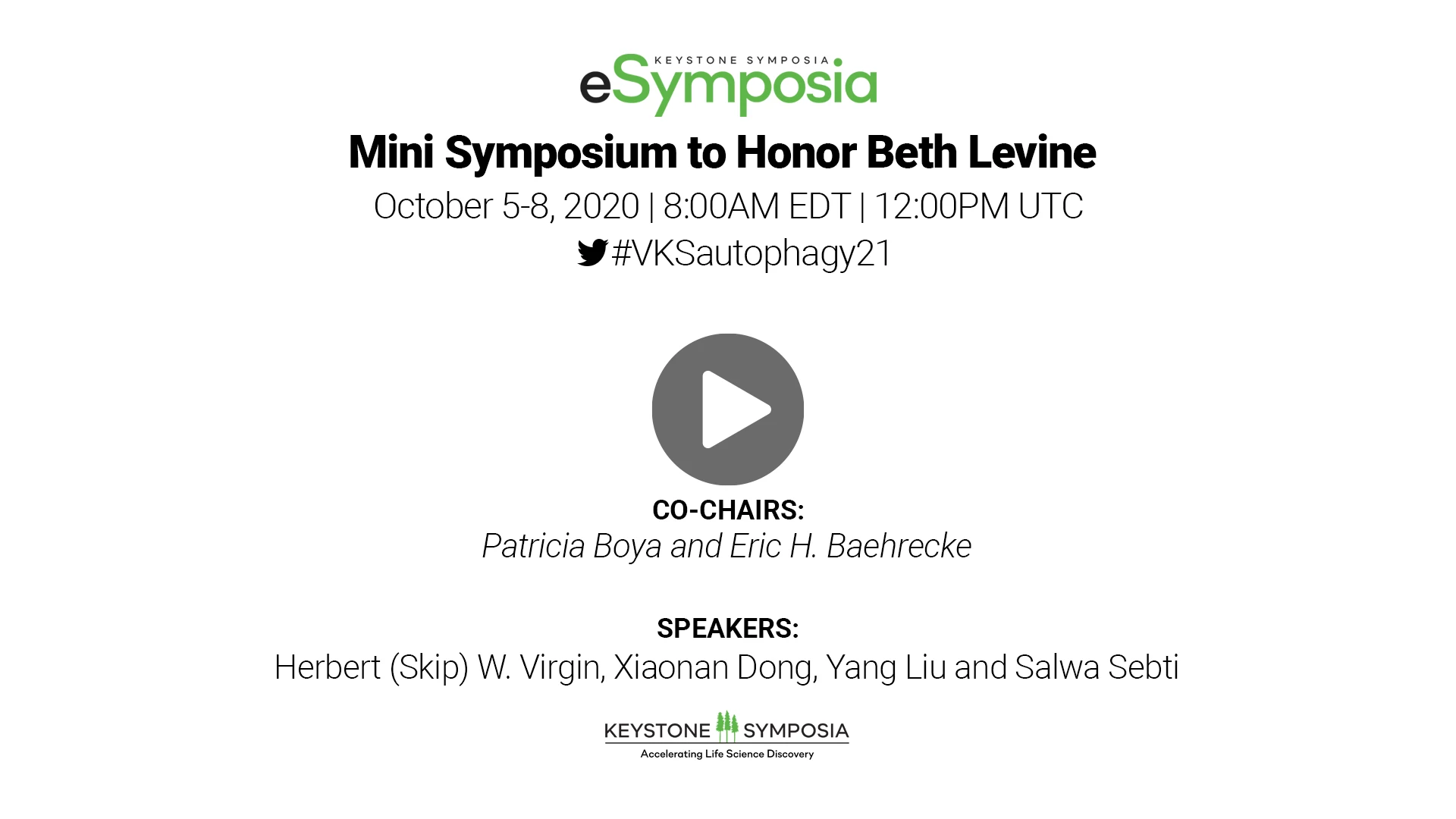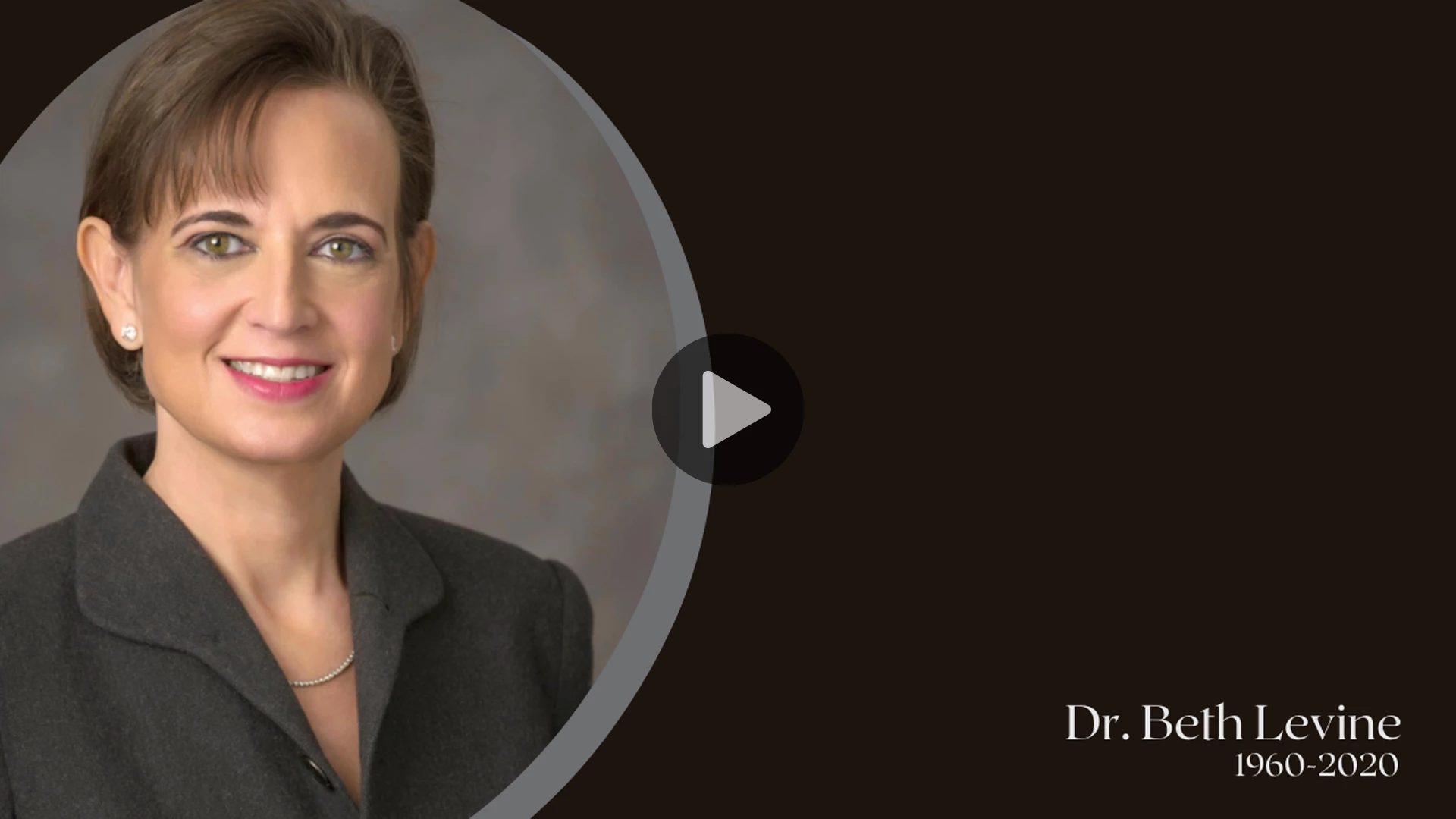
Autophagy: Mechanisms and Disease
October 5-8, 2020 | 8:00AM EDT | 12:00PM UTC*
*Program is in development and subject to change
Honoring Beth Levine
Beth Levine was a pillar among the autophagy community, as a driver of not only scientific advances, but also personal connections. She was a key leader, mentor and friend who inspired the autophagy field, and her colleagues, to challenge the status quo, and themselves. Together, they achieved new heights in scientific discovery and medical insight, placing autophagy on the map and at the center of many disease states.
Beth tragically passed away on June 15, 2020, from metastatic breast cancer, but her impact on the field, and those around her will never be forgotten. Her colleagues rallied around her memory at the meeting, sharing a heartfelt tribute to her life, work and impact. This special session on the first day of the meeting, led by long-time friends and colleagues Herbert (Skip) Virgin, Ana Maria Cuervo and Malene Hansen, was an inspiration to us all.
Visit the KeyPoint blog for more on Beth Levine's life and work.
Dr. Milton Packer reflects on the sentiments shared about his late wife Dr. Beth Levine.
"On behalf of our children and myself, I would like to extend our deepest gratitude to the Keystone Symposia for honoring Beth today. Our family is so thankful to Eric, Patricia, Skip, Malene and Ana Maria for their wonderful presentations. I listened to everyone live, and I was amazed as to how well everyone was able to capture her energy, spirit and dedication.
"I want to underscore a few important themes. Beth admired great science, but she also believed deeply in the concept of an autophagy community. It was only through the creation of a community that autophagy research could really advance. And it was only through the creation of a community that those who were experts in different but complementary disciplines could work together to solve problems. And most importantly of all, it was only through the creation of a community that young investigators could be encouraged to develop and to flourish.
"But it is really hard to create a community that works. Communities do not create themselves. Someone needs to be a champion. Someone needs to gently bring people together and promote the right spirit and chemistry. Beth was totally dedicated to this challenge. To her, the creation of community was almost as important as her own scientific achievements.
"Beth was not afraid of dying. During my conversations during her final months, she told me that the problem with death is that it stops people from doing what they love to do. Death stops people from thinking of new ideas, of designing new experiments and of making new discoveries. Death keeps people from achieving their goals of creating and nurturing a community that achieves great things.
"On occasion, Beth and I talked about immortality. On an organismal level, immortality is impossible. But in truth, immortality is not really a biological concept. Instead, it is a profoundly human and social concept. People actually do live after their death, and often, they do so more richly than when they were physically alive. They live in our hearts and minds. They profoundly influence what we do and how we do it. They live because we remember them, and in return, they remind us to do the right thing. By honoring them, we remind ourselves to be the best we can possibly be.
"By honoring Beth and her legacy, the autophagy community strengthens its own identity and its own ideals. Doing so reminds everyone of their true mission of both advancing science and developing people. Legacy becomes the driving force to community. And I can assure that that is exactly what Beth would have wanted."
View the Mini Symposium to Honor Beth Levine on the Presentations On Demand page.

